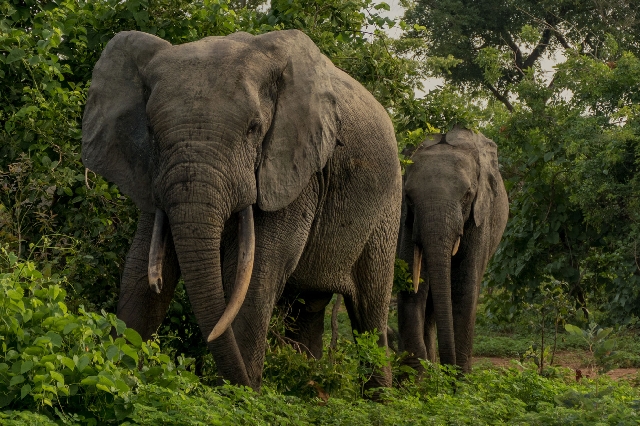Akufo-Addo assents to Wildlife Management Resources Bill, 2022
 Elephants in the wild
Elephants in the wild
President Nana Addo Dankwa Akufo-Addo has signed into law an Act of Parliament which seeks to revise and consolidate all laws relating to wildlife and protected areas. The Wildlife Resources Management Act, 2024 (Act 1115), sponsored by the Ministry of Lands and Natural Resources, was passed by Parliament on 28th July, 2023, and assented to by the President on 1st March, 2024.
The Wildlife Resources Management Bill, which had been pending for over fifteen (15) years, was previously laid before the fifth, sixth and seventh Parliaments, until it was eventually passed by the Eighth Parliament, on 28th July, 2023.
Wildlife and protected areas were previously regulated by the Wild Animals Preservation Act, 1961 (Act 43), the Wildlife Conservation Regulations, 1971 (L.I. 685) and the Wildlife Reserves Regulations, 1971 (L.I. 710). These legislation, enacted over fifty (50) years ago, were not in tune with current international best practices for wildlife protection and management, and did not provide a proper legal framework for the implementation of the Forest and Wildlife Policy, 2012, the Forestry Development Master Plan (2016-2036) and other national and international frameworks that guide sustainable resource management, all of which were adopted years after these laws were passed. These previous legislation, also, did not clearly define the aims and objectives of wildlife management and the various categories of protected areas, and lacked deterrent sanctions for wildlife offences.
On Thursday, October 28, 2021, Cabinet, at its seventeenth (17th) meeting, gave approval for the new Wildlife Resources Management Bill, developed through a very extensive consultative process involving both state and non-state actors, to be laid in Parliament, leading to its passage and assent by the President.
Among others, the new law brings Ghana’s wildlife law in conformity with existing policies in the sector and provide for the implementation of international conventions on wildlife to which Ghana is a signatory. It provides for a new management structure to give legal backing to the involvement of local communities in wildlife management through the creation of Community Resources Management Areas (CREMAs) and provide higher penalties and sanctions regime for wildlife offenses, deterrent enough to protect our wildlife resources.
The law also provides for the implementation of several international wildlife conventions to which Ghana is a signatory, such as the Convention on Wetlands of International Importance Especially as Waterfowl Habitats (RAMSAR), 1971, the Convention on International Trade in Endangered Species of Wild Fauna and Flora, (CITES), 1973, the Convention on the Conservation of Migratory Species of Wild Animals (BONN), 1979, as well as several indicators in the Sustainable Development Goals (SDGs).
The Ministry of Lands and Natural Resources is committed to the effective implementation of this important piece of legislation for the efficient and progressive preservation and management of the wildlife resources of our country, in the spirit of transparency, anchored on integrity and utmost good faith, for the benefit of the Ghanaian people.
Source: classfmonline.com
Trending News

Bawumia: 'My early concession was to save Ghana from unnecessary tension'
08:05
NDC Legal Director demands answers from Adu Boahene and his lawyer over alleged diversion of public funds
03:01
Bawku Crisis: Bawumia calls for cooperation for lasting peace
06:44
Nyaho Tamakloe not regsitered as NPP’s founding member– Kofi Ofosu Nkansah
02:57
Our comeback requires having open arms to all – Bawumia to NPP
09:37
Gov't inaugurates new governing board of National Peace Council
02:38
Let's avoid partisanship in pursuit of peace for Bawku
06:39
Let's avoid attacking each other in the media; it weakens our party - Bawumia to NPP supporters
15:07
Let’s all rise and rebuild for victory 2028 - Bawumia to NPP faithful
07:31
WAEC calls for stakeholder support to help curb rising exam malpractices
02:15




